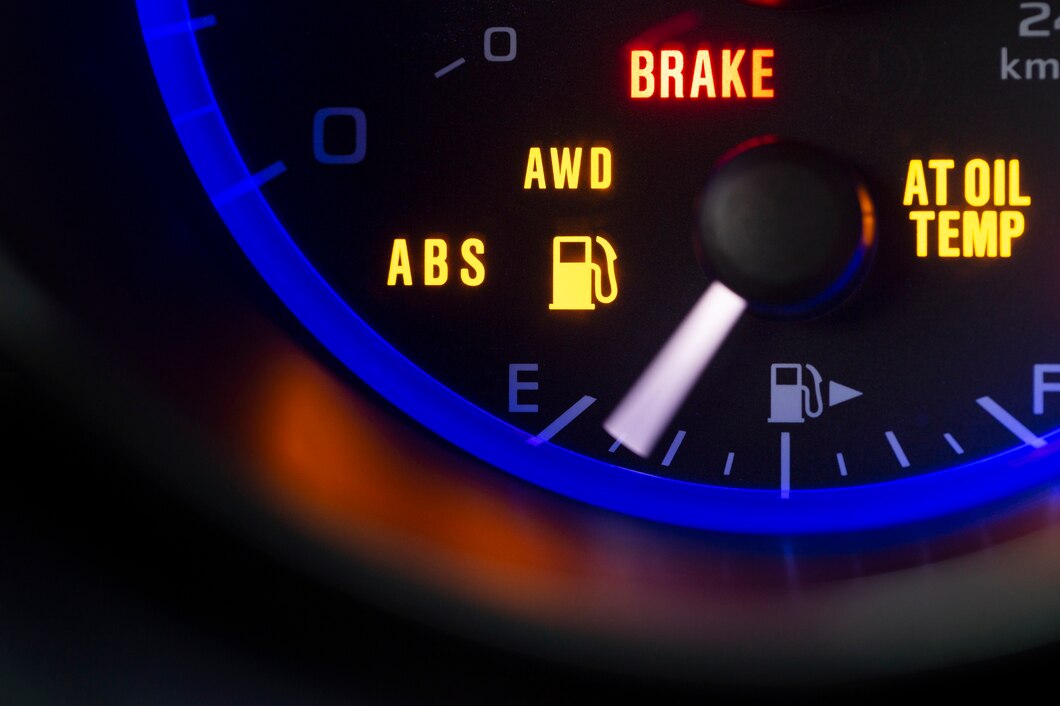Brake fluid is an essential component of your car’s braking system, ensuring smooth and efficient operation. Over time, however, brake fluid can become contaminated, which can compromise the effectiveness of your brakes and pose serious safety risks. Recognizing the early signs of brake fluid contamination is crucial for maintaining your vehicle’s performance and safety. Here are some early indicators that your car’s brake fluid may be contaminated.
1. Spongy or Soft Brake Pedal
One of the most common signs of contaminated brake fluid is a change in the feel of the brake pedal. If the pedal feels spongy or softer than usual when you press it, this can indicate that air or moisture has entered the brake fluid, compromising its ability to effectively transmit pressure.
What to Do: Have your brake fluid checked and, if necessary, replaced by a professional mechanic. Bleeding the brake lines may also be required to remove air pockets.
2. Increased Stopping Distance
Contaminated brake fluid can reduce the efficiency of your braking system, leading to an increased stopping distance. If you notice that it takes longer to bring your car to a complete stop, it may be due to compromised brake fluid.
What to Do: Schedule an inspection with your mechanic to assess the brake fluid and overall braking system. Timely intervention can prevent accidents and ensure your brakes are working properly.
3. Discolored Brake Fluid
Healthy brake fluid is typically clear or slightly amber. If you notice that the fluid has turned dark brown or black, this is a clear sign of contamination. Discoloration can result from the fluid absorbing moisture, dirt, and debris over time.
What to Do: Regularly check the color of your brake fluid through the reservoir. If it appears discolored, have it flushed and replaced by a professional.
4. Burning Smell While Braking
A burning smell when you apply the brakes can indicate that the brake fluid is overheated or contaminated. This is often accompanied by a decrease in braking performance and can signal that the fluid is not able to withstand high temperatures.
What to Do: If you smell something burning when braking, stop driving and let the brakes cool down. Then, have your vehicle inspected to identify and address the cause of the overheating.
5. Brake Warning Light
Modern vehicles are equipped with various warning systems, including a brake warning light. If this light comes on, it could be due to a variety of issues, including low or contaminated brake fluid.
What to Do: Don’t ignore the brake warning light. Check your brake fluid level and condition, and consult your owner’s manual for further instructions. If the light remains on, seek professional assistance immediately.
6. Corroded Brake Components
Contaminated brake fluid can cause corrosion in the braking system components, such as brake lines, calipers, and master cylinders. This corrosion can lead to leaks and further degradation of the braking system.
What to Do: Regular maintenance and inspections are key to preventing corrosion. If you suspect contamination, have a mechanic inspect the braking system for signs of corrosion and address any issues promptly.
7. Unusual Noises While Braking
Squeaking, grinding, or other unusual noises when applying the brakes can be indicative of various problems, including contaminated brake fluid. These noises can result from metal components rubbing together due to inadequate lubrication and pressure.
What to Do: Pay attention to any abnormal sounds and have your braking system checked by a professional. Identifying and resolving the issue early can prevent further damage.
Preventive Measures and Maintenance Tips
- Regular Fluid Checks: Periodically check the color and level of your brake fluid. Refer to your vehicle’s maintenance schedule for recommended intervals.
- Scheduled Maintenance: Adhere to your vehicle’s maintenance schedule for brake fluid replacement. Typically, brake fluid should be changed every two to three years, but consult your owner’s manual for specifics.
- Professional Inspections: Have your brakes inspected by a certified mechanic at least once a year, especially if you notice any signs of contamination.
- Safe Driving Habits: Avoid hard braking and high-speed driving, which can increase the risk of brake fluid overheating and contamination.
Maintaining the integrity of your car’s brake fluid is essential for safe driving. Recognizing the early signs of brake fluid contamination—such as a spongy brake pedal, increased stopping distance, discolored fluid, burning smells, brake warning lights, corroded components, and unusual noises—can help you address issues promptly. Regular checks and professional maintenance are key to ensuring your brake system remains in top condition, providing you with peace of mind and safe travels.











